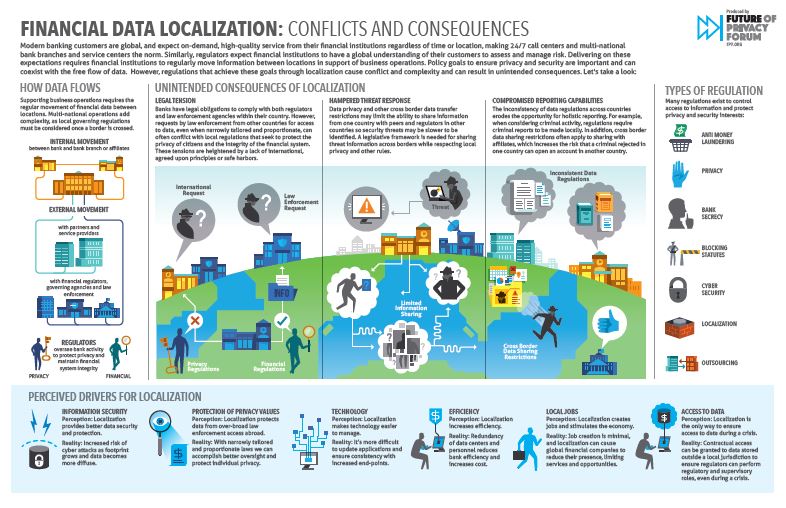Financial Data Localization: Conflicts and Consequences Infographic
The Financial Data Localization: Conflicts and Consequences infographic explores the perceived drivers and the potential unintended consequences of the growing trend of global data localization laws. Data localization laws, which require data about a country’s residents be processed or stored inside the geographical boundaries of a country, are often perceived as a way to protect privacy, stimulate a local economy, or maintain national control over data and technology, among other motivations.
This infographic highlights three ways in which such laws may lead to unintended results: First, legal tension is often created by banks’ conflicting obligations to comply with local privacy laws and international law enforcement requests; second, threat responses may be hampered by cross-border data transfer restrictions that limit banks’ abilities to share security threats from one country to another; and finally, banks’ reporting abilities may be compromised by regulations that restrict cross border data transfer and regulations that require criminal reports to be made locally, increasing the risk that a criminal rejected in one country can open an account in another country.

